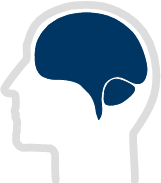International Graduate School of Neuroscience

Colloquium
Temporal Dynamics of stress-induced alternations of memory and brain connectivity
Wednesday, July 3, 2019, 11 a.m., Seminar Room FNO - 01 / 117
- Conny Quaedflieg
- Department of Clinical Psychological Science, Faculty of Psychology and Neuroscience,, Maastricht University, the Netherlands
Stressful events have a major impact on memory. They modulate memory formation in a time dependent manner, closely linked to the temporal profile of action of major stress mediators, in particular catecholamines and glucocorticoids. Specifically, acute stress sets the brain in a consolidation mode and thus enhances memory formation when it is experienced within the spatiotemporal context of the learning episode. Following this period of potential memory enhancement, genomic GR actions induce a refractory state of the hippocampus, impairing the processing of new information. Thus, these rapid non-genomic and delayed genomic glucocorticoid actions, have opposite effects on certain brain areas. Rapid non-genomic cortisol effects enhance activity while delayed genomic effects suppress activity in the hippocampus and this effect is reversed in the prefrontal cortex.
Host
- Oliver T. Wolf
Institute of Cognitive Neuroscience; Faculty of Psychology, Ruhr University Bochum
